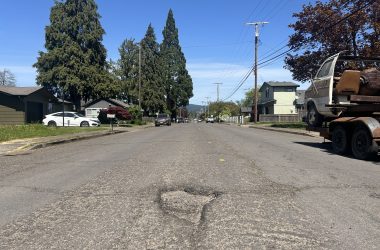Live long enough, and you come to understand that the world occasionally shifts its axis. In those moments, routines and necessities change: time stops.
The coronavirus pandemic has increased the speed and frequency with which we ride the roller coaster of living. Optimism and pessimism rise and fall like tides. People struggle with having the most basic form of control taken away. Humans, with their endless creativity and resilience, rally their optimism even as they “ride it out” checking the numbers each day for signs that things will return to “normal.” One thing is certain: we are alive, and for some, experiencing the majesty of that for the first time.
Living in an industrial age, few of us experience a creature’s life. Few of us grow or hunt our food. We live in homes that are never too cold or too hot. There is a droning predictability to things. Many of us live in a world where how and what we think comes by cable, phone, or the Internet. We live apart from anything local, and our lives are occupied with anything but basic survival.
And then, the world stops: work stops, school stops, church stops, commerce grinds to a halt, and distractions like sports and socializing stop. For some, the sudden vacancy of time is a torment, for others, a pleasure, a reminder there is more to life than grinding.
I recall the other times before in my life of almost sixty-five years when the world stopped.
There was a hurricane in 1960, when my family sped home in torrential rains beginning to challenge the windshield wipers, casting doubt on whether we would reach our harbor, our refuge from the storm. Five years old, I still recall the tension and aliveness in those hours.
In 1963, three days after moving to an alien and frightening New York City, President Kennedy was killed, and our world went into shutdown, sequestered in a small hotel room with my parents and two sisters awaiting the move to our apartment.
A few years later, The Blackout, when the entire eastern seaboard lost power — and the homes and streets of New York went dark. People poured out of their apartments and by flashlight united in curiosity and support, not typical behavior by New Yorkers who adapt to a dense world of humanity by maintaining an impenetrable shield of detachment.
A few years later, another hurricane was barreling down on the city, and I was driving like a maniac to get home before the storm hit. And, the irony of ironies, once I made it home, instead of staying inside, I left my home to walk the barren streets and watch the storm toss wires and roofs and anything not battened down, then washing it all into the river. Talk about feeling alive!
Fifty years into life in the Northwest, I have experienced blizzards, prolonged winter power outages, and shutdowns when the basics of life like candles and cooking over the woodstove connected us to our lives in satisfying ways. Alive again, knowing we have the tools and instincts to survive.
None of these events held us as does COVID-19, with the entire globe in its hands. A tiny, mindless virus with seven billion people in its gravity. Like the Bruce Springsteen song, Point Blank, the virus reminds us that, “No one survives untouched.” No one survives untouched at this moment we will share for the rest of our lives; the moment when the planet turned, time stopped, and we survived, feeling every moment of our precious lives.
For many of us, this will be the defining moment of our lives. Embrace it, help others who need your strength, and trust the steady beating of your own heart.







